How to stay safe from malaria when travelling to Chiang Mai?
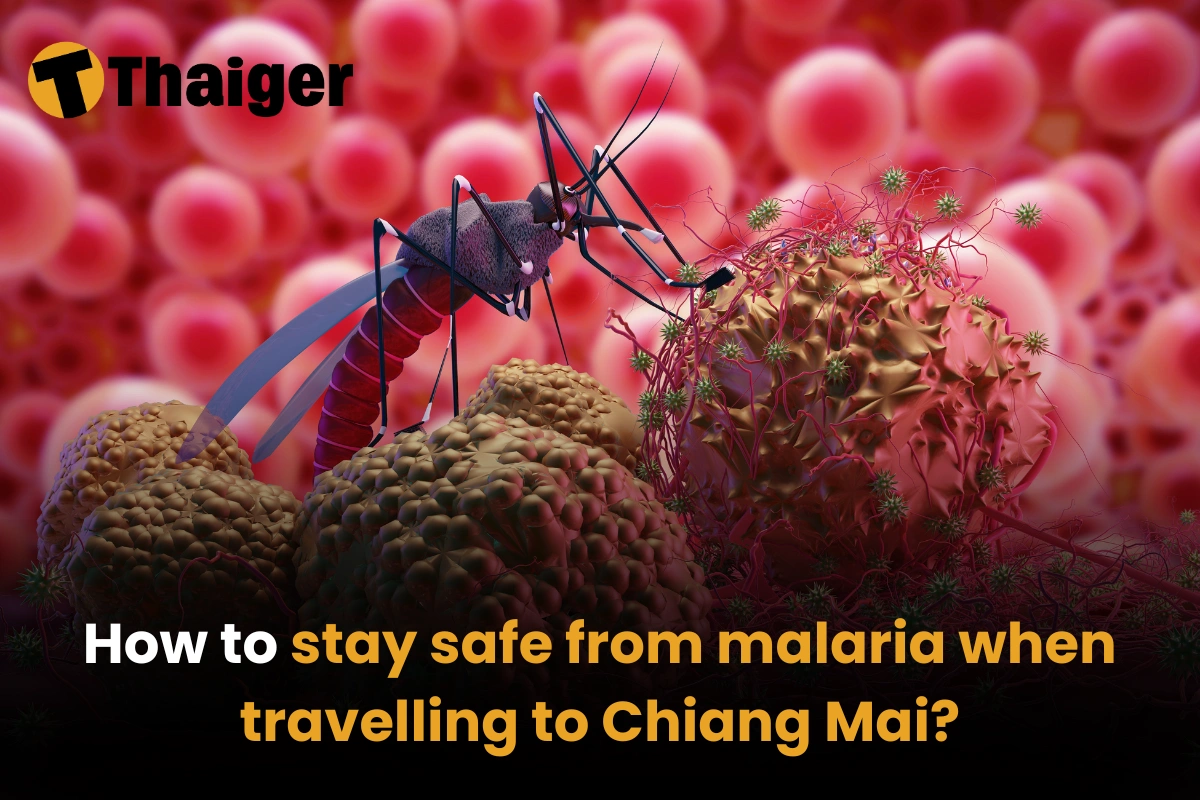
Planning a trip to Chiang Mai? Whether you want to explore ancient temples, trek through lush jungles, or enjoy the vibrant night markets, it’s essential to know about potential health risks like malaria. This guide will help you understand malaria risks in Chiang Mai and provide practical tips to ensure your trip is both safe and memorable.
Malaria in Chiang Mai
Chiang Mai has a low malaria risk in urban areas, but caution is needed in rural regions. Preventive measures against mosquito bites are essential for travelers venturing outside the city.
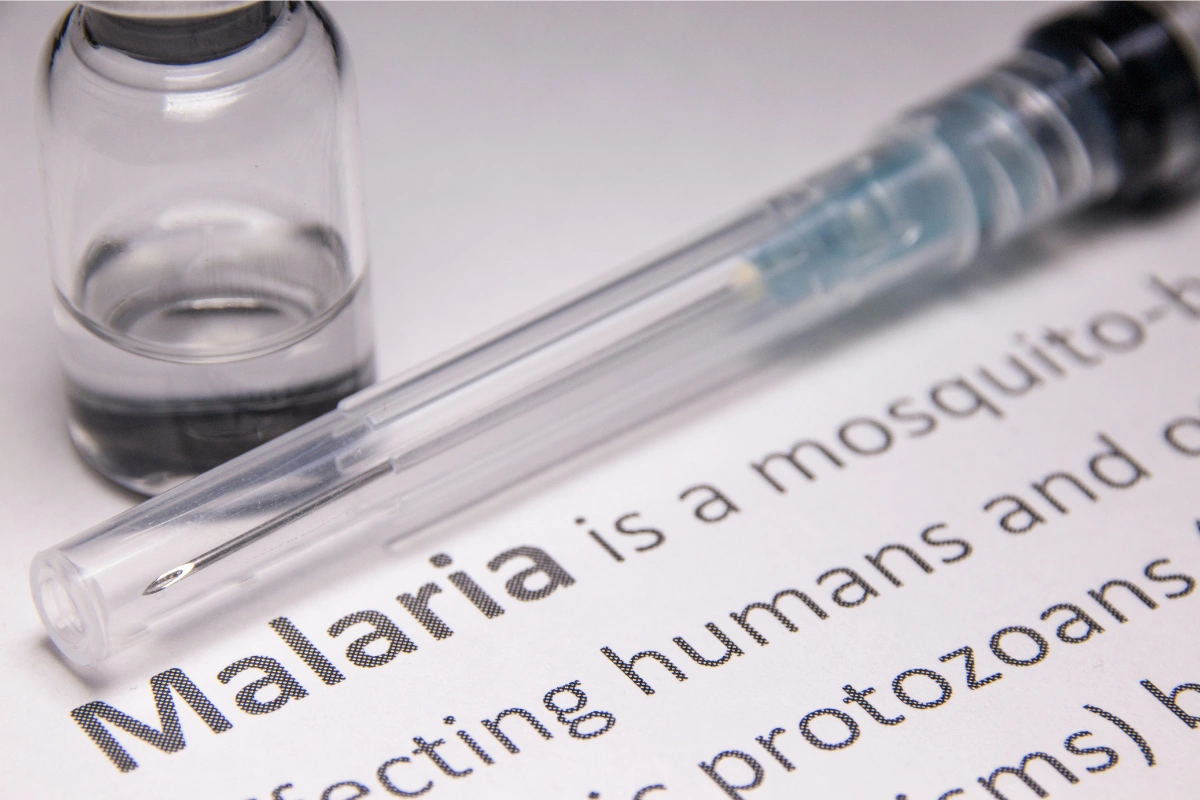
What is malaria?
Malaria is a mosquito-borne disease caused by Plasmodium parasites. It leads to severe illness and can be life-threatening without prompt treatment.
Symptoms include:
- Fever
- Chills
- Headache
- Fatigue
Malaria risk overview
Urban areas: Good news! There is no risk of malaria in Chiang Mai city or in other major urban areas like Bangkok and Pattaya. These cities have strong mosquito control measures in place, making them safe for travellers without the need for special precautions against malaria.
Rural areas: Malaria is a risk in remote and forested areas of Chiang Mai, especially near the borders with Myanmar, Laos, and Cambodia. If you plan to visit these areas, make sure to take precautions like using insect repellent, wearing long sleeves and pants, and staying in places with mosquito protection.
Thailand malaria map
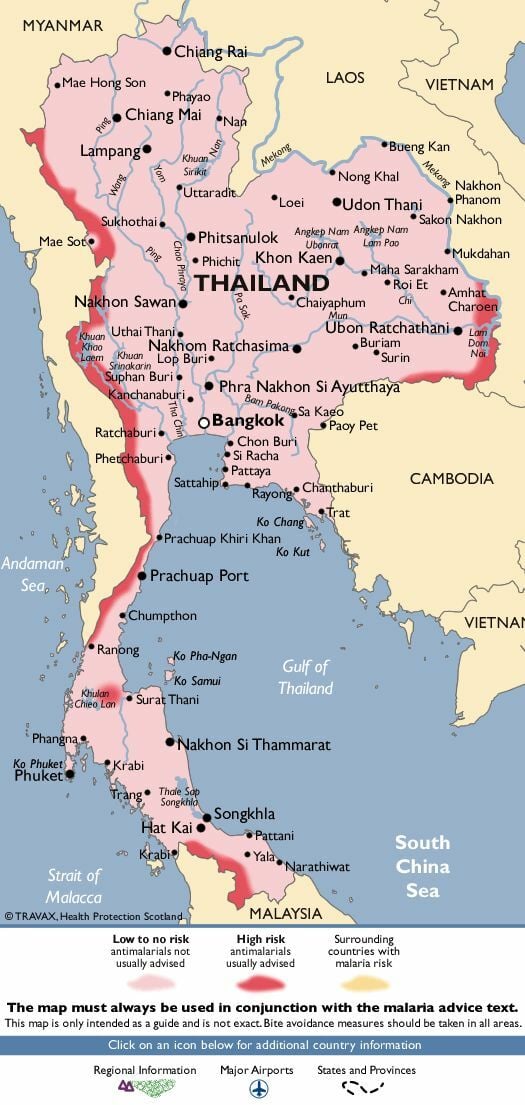
Malaria season and risk periods in Thailand
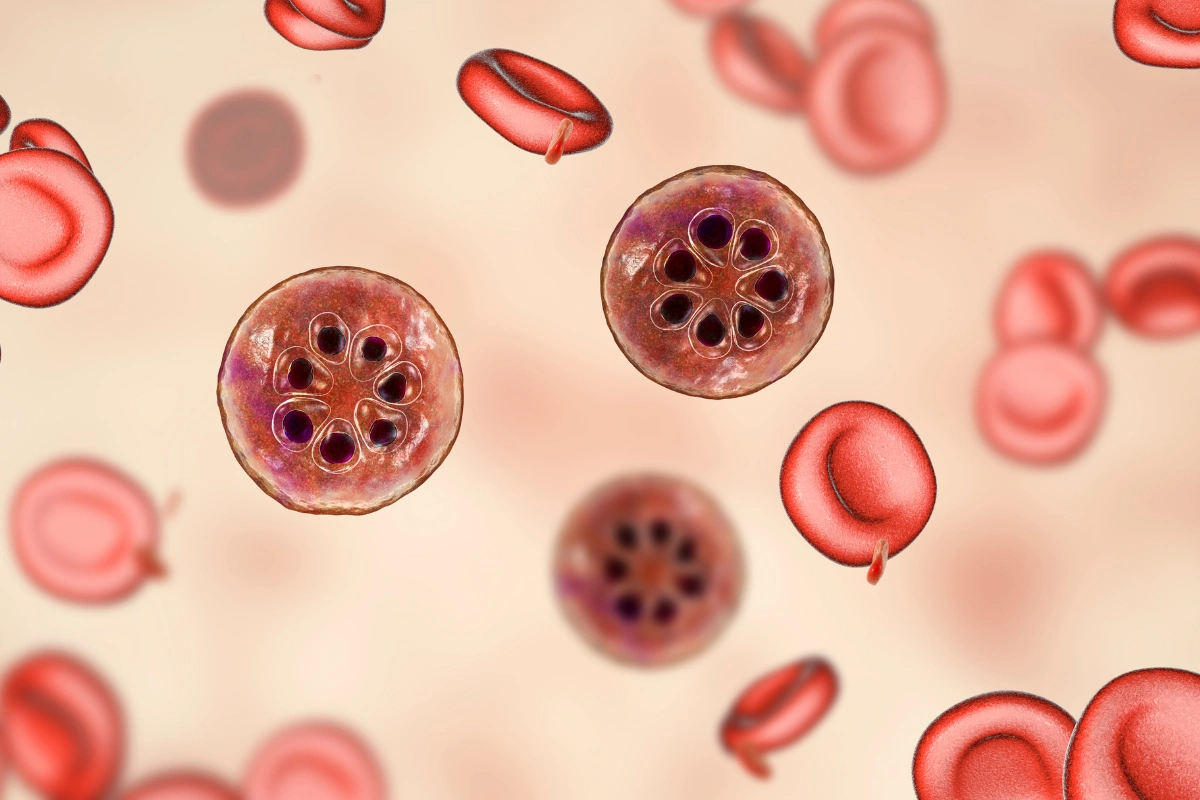
In Thailand, the risk of malaria is higher during the rainy season from May to October, with most cases happening from June to September when mosquito numbers are highest. Travellers, especially those going to remote areas, should use insect repellent, wear long sleeves, and sleep under mosquito nets, as mosquitoes are most active at dusk and dawn.
In Chiang Mai, malaria risk also increases in rural and forested areas due to factors like warm temperatures, high humidity, and standing water. Heavy rains create more places for mosquitoes to breed, and humidity above 70% with temperatures between 25°C and 30°C increases their activity. Travellers in these areas should take extra care during peak months.
| Factor | Impact on malaria transmission |
| Mosquito population | Higher in rural and forested areas |
| Rainy season | May to October, peak cases June-September |
| Temperature | 25°C to 30°C increases mosquito activity |
| Humidity | Above 70% fosters mosquito breeding |
| Geographical areas | Borders with Myanmar and Laos higher risk |
Symptoms of malaria
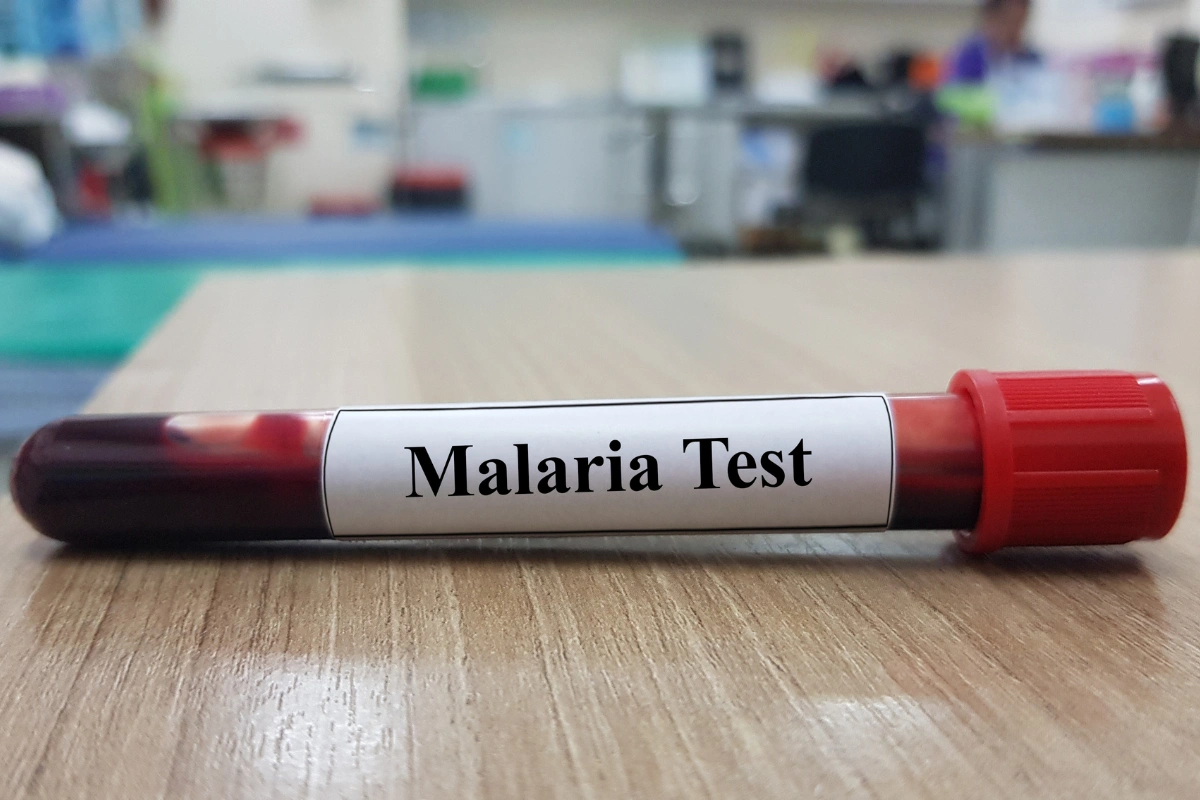
Malaria symptoms often start with a sudden fever, followed by chills and sweating. This is usually accompanied by severe headaches, muscle or joint pain, and fatigue, which make daily activities difficult. Other common symptoms include nausea, vomiting, and loss of appetite, sometimes leading to diarrhoea and abdominal pain.
In severe cases, malaria can cause jaundice, noticeable by yellowing of the eyes and skin, and may lead to serious complications if not treated promptly. Recognising these symptoms early and seeking medical attention can help prevent the disease from becoming life-threatening.
| Symptom type | Symptoms |
| Common |
|
| Severe |
|
Treatment and management of malaria
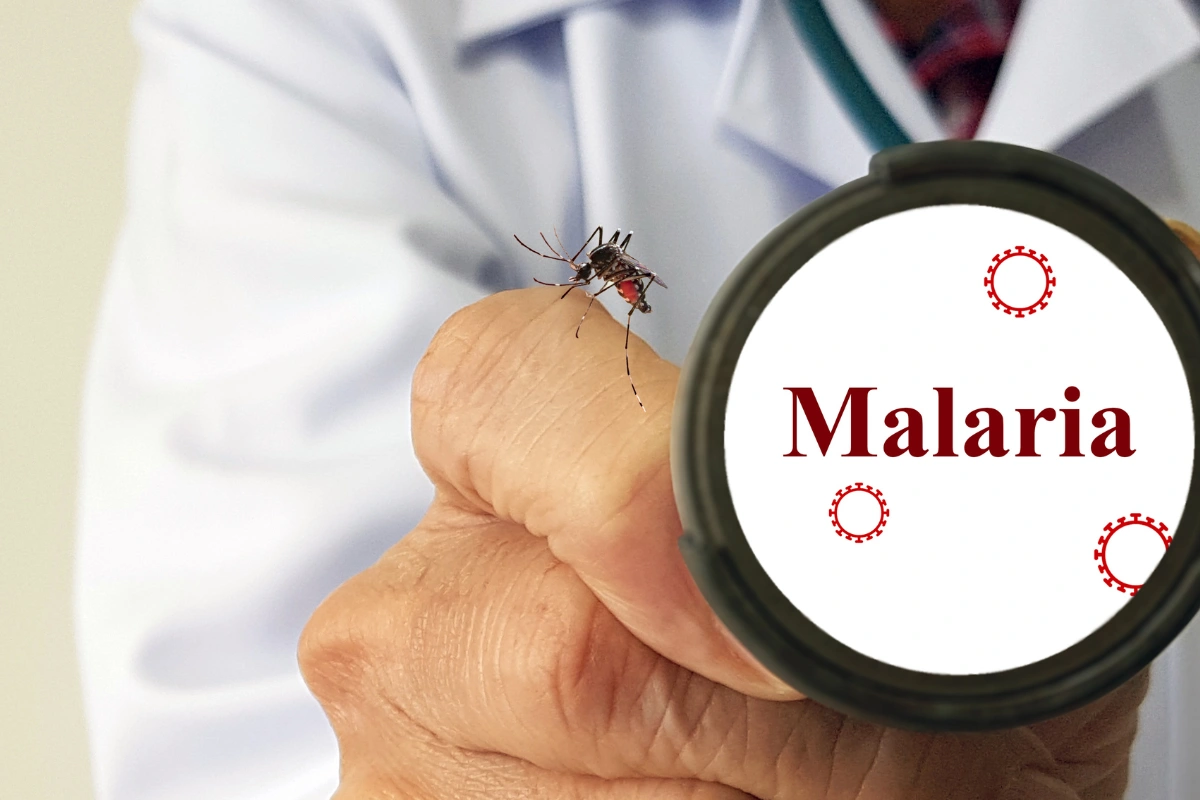
Is malaria curable or treatable?
Yes, malaria is both curable and treatable. With prompt diagnosis and appropriate antimalarial medications, most people recover fully. In Thailand, access to effective treatment is readily available, especially in urban areas.
Managing dengue fever
While malaria risk is low in Chiang Mai, dengue fever is more common. Symptoms include high fever, severe headache, pain behind the eyes, joint and muscle pain, and rash. There is no specific treatment for dengue, so supportive care is essential. Preventing mosquito bites is the best way to avoid dengue.
Precautions for travellers going to Chiang Mai
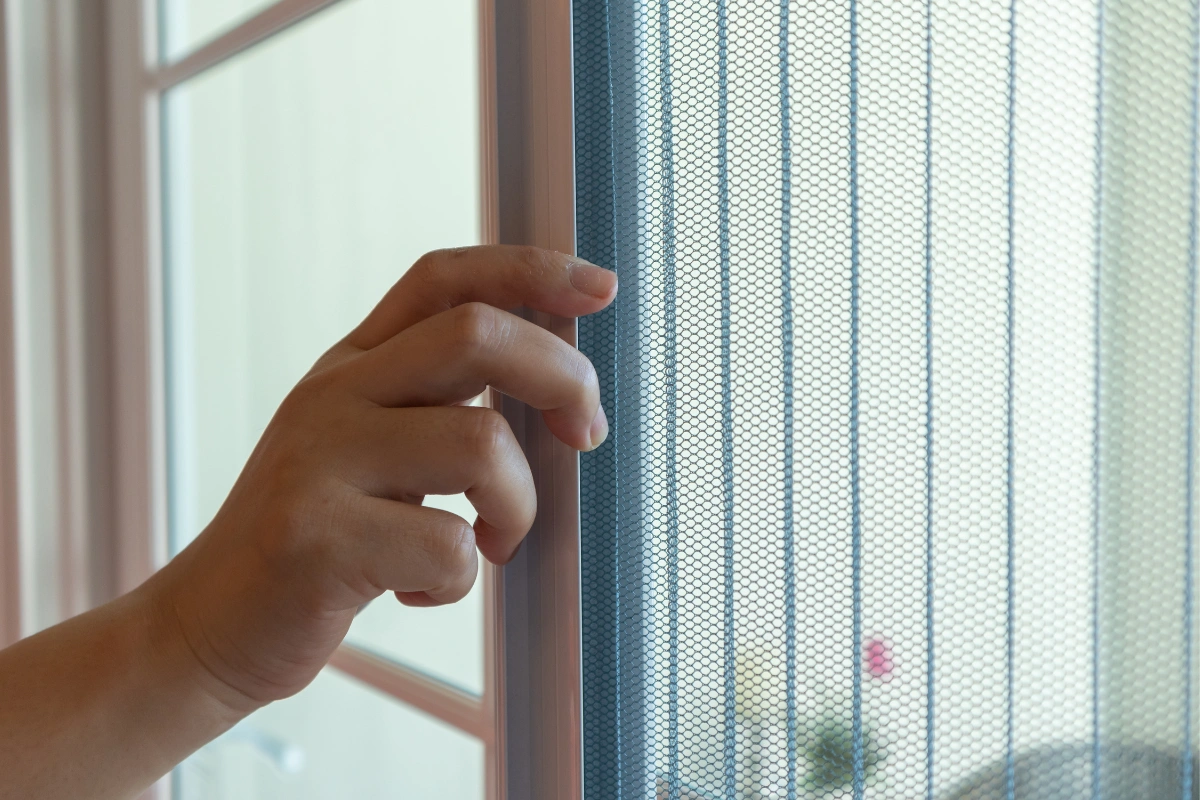
Malaria is a serious mosquito-borne disease common in tropical regions. Travellers to these areas should take specific precautions to protect themselves from this potentially life-threatening illness.
Preventive measures to reduce mosquito bites
If you’re heading to rural or border areas, follow these tips to avoid mosquito bites.
- Wear long sleeves and pants: Cover your skin to reduce the chances of mosquito bites.
- Use insect repellents: Apply repellents with at least 50% DEET to exposed skin and reapply every few hours, especially after sunset.
- Avoid shiny jewellery and perfumes: These can attract mosquitoes, so it’s best to avoid them.
- Sleep under mosquito nets: Use insecticide-treated nets, especially in high-risk areas.
- Choose accommodations with mosquito protection: Stay in places with screened windows or air conditioning to reduce exposure.
Medication for malaria
If you’re visiting high-risk rural or border areas near Chiang Mai, taking antimalarial medication is important. Talk to a healthcare professional at least four weeks before your trip to get the right prescription. Common options include doxycycline, mefloquine, or atovaquone-proguanil, depending on your health and travel plans. Follow the medication schedule carefully, be aware of any side effects, and stay prepared.
Current health initiatives to fight against malaria in Thailand
Local health authorities in Thailand are committed to eliminating malaria, focusing on remote districts like Mae Sariang. Their efforts include engaging communities and improving healthcare access to ensure quick diagnosis and treatment.
The National Malaria Elimination Strategy (2017-2026) sets the goal of eliminating malaria by 2024, with a budget of 2.3 billion baht (around $64.8 million) for control measures. This plan promotes new technologies, innovation, and partnerships to encourage healthy habits that help prevent malaria.
A key part of the strategy is the ‘1-3-7′ surveillance approach: confirmed cases must be reported within one day, investigated within three days, and followed up within seven days. This system has boosted response rates, reducing malaria cases from 24,332 in 2015 to just 2,893 last year.
Additionally, Thailand distributes insecticide-treated mosquito nets, conducts indoor spraying in high-risk areas, and provides preventive treatments for vulnerable groups like young children and migrant workers. Through these proactive steps, Thailand aims to keep malaria under control and achieve its elimination targets.
Overall, travelling to Chiang Mai doesn’t pose a high threat of getting Malaria, and you will be able to enjoy your trip. However, we still advise you to take some precautions against mosquito-borne diseases in Thailand because prevention is always better than curing it!
Do I need malaria tablets for Chiang Mai?
You do not need malaria tablets for Chiang Mai, as the risk is very low in urban areas. However, if you plan to visit rural or forested areas, consult a healthcare professional for personalised advice.
When are mosquitoes worst in Thailand?
Mosquitoes in Thailand are most active during the rainy season, which typically runs from June to October. This period sees an increase in mosquito populations due to abundant standing water, making it ideal for breeding.
What happens if you get malaria?
Malaria causes flu-like symptoms and can progress to severe complications. Prompt diagnosis and treatment with antimalarial medications are crucial for recovery and preventing serious health issues.
Where is malaria in Thailand?
Malaria in Thailand is primarily found in rural and forested areas, particularly along the borders with Myanmar, Cambodia, and Laos. The risk is significantly higher in these regions compared to urban centers.
Are there mosquitoes in Chiang Mai?
Yes, there are mosquitoes in Chiang Mai, particularly during the rainy season from June to October when their populations increase due to breeding in stagnant water.
Latest Thailand News
Follow The Thaiger on Google News:


























